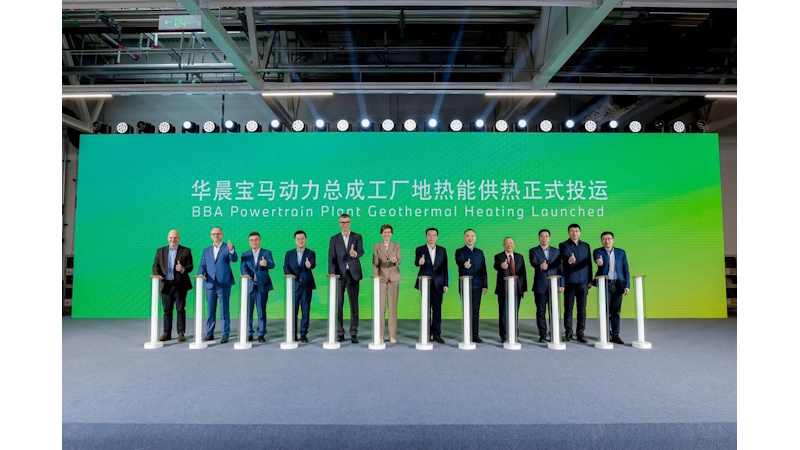BMW Group has advanced its global renewable energy strategy with the launch of a geothermal heating project in Shenyang, Northeast China.
The initiative demonstrates how BMW is leveraging local innovation to reduce its manufacturing carbon footprint while strengthening its competitiveness in China’s rapidly evolving electric vehicle market.
Shenyang, a major industrial center traditionally reliant on fossil fuels, faces increasing pressure to adopt low-carbon heating solutions as part of its decarbonisation goals.
BMW’s project uses coaxial casing heat exchangers to extract geothermal heat from rock formations at depths of around 2,900 meters through a fully closed-loop system that draws heat without water withdrawal, helping protect local groundwater and soil.
This technology requires less land, delivers higher efficiency and offers greater operational stability compared with conventional shallow geothermal systems. It is well-suited for the harsh winters of northern China.
The installation consists of 28 medium-deep geothermal wells, providing heating for approximately 580,000 square meters.
The system is expected to reduce carbon emissions by 18,000 tons annually and act as a scalable model for clean heating across industrial zones in northern China.


